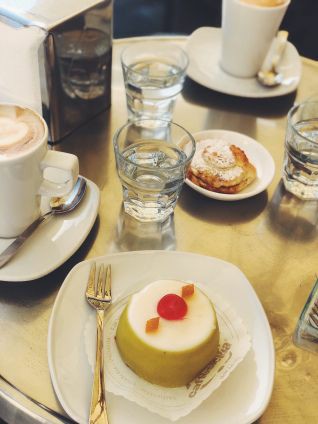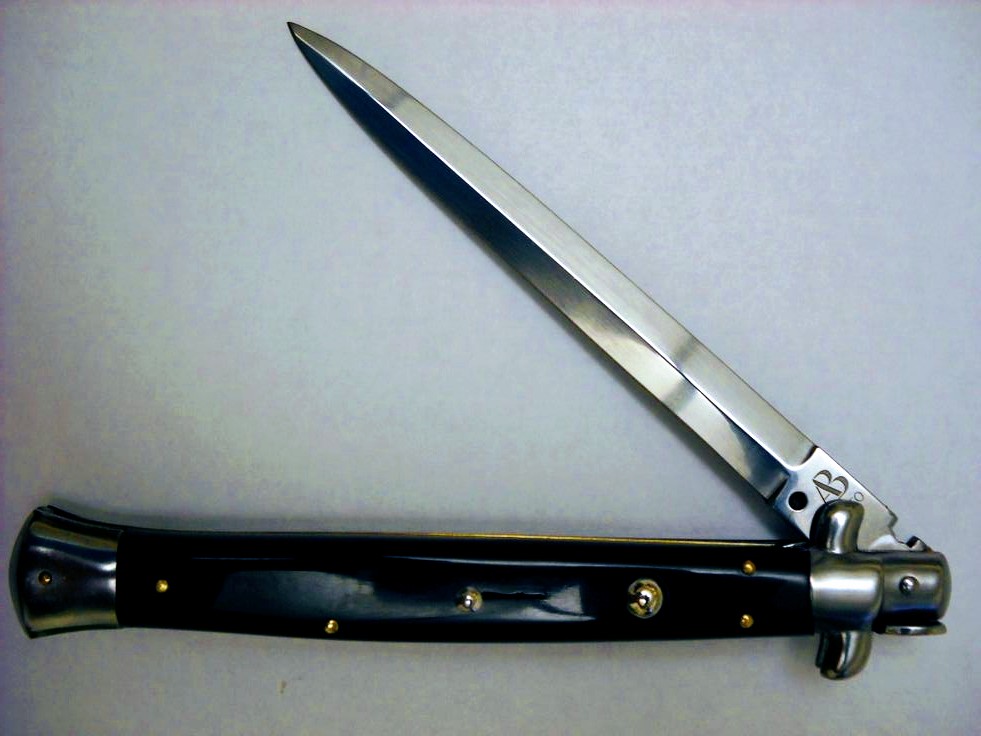A dark city has no place for innocents. Ciara made the trip from her farm near Agrigento only twice a year. She was no innocent, but her son, he played like a Saint. The small town life and country villa style of a sixth generation paisan lent a certain nobility to their presence on the dirty streets – they were compatriots but as different from their urban counterparts as an ossobuco is from pasta con le sarde: the northern dish, rich and glossy, the other, a humble assemblage of African raisins, native fennel and the tang of Mediterranean salt. Palermo breathed into their faces, and their skin withered like dried grapes; this was a journey Ciara hated, but it was necessary. And necessity is what drives Sicily.

Doctor Salvatore Galia worked at the University. Eighteen years – the escape to Napoli for two years was a failed attempt. Even that city couldn’t quite match the culture of his native Palermo, and he had never quite adapted or fitted in. The academics there, so frowned upon by their northern colleagues, had never accepted his – to their minds parochial – island mentality. They were proud, conquering Neopolitans. He was a product of a thousand years of invasion and sublimation. A survivor. A gene pool so mixed of bloods that it was indiscernible where his chin matched his forehead and his tongue spoke with dialects drawn from all over the ancient world. Today was his penultimate day. Ahead lay bucolic rest, an archeological lecture tour on Aegean Cruise Lines every winter and sun rest. He cricked his neck out of unconscious habit. One day remaining. A drinks reception tonight that had to be endured and the biannual meeting with his appropriately named angelic nephew, Gabrielle. He sipped the sweet Moscato. The day was tolerable.

Salvatore Galia stood in the colonnade of the University’s cloister, fingering the thin stem of a wine glass, watching the students cross the courtyard below like ants. It was late May. The sun had dipped below Monte Pellegrino but left behind a burnt orange stain on the sky. Faculty buzzed around him, all false reverence and real envy. He had outlasted them. He had held his post longer than most had held marriages. And now he was slipping away on a golden cloud of emeritus status, foreign lecture invitations, and curated exhibitions.
He spotted Gabrielle before he heard him—tall, wiry, the mop of black hair already fighting the formality of the starched shirt his mother had likely insisted upon. Ciara always dressed the boy like a postulant monk on these visits. He crossed the cloister slowly, reverently, but with that same spark in his eye Salvatore had always noticed—the one that told him the boy saw things. Noticed more than was safe in a city like Palermo.
“Zio,” Gabrielle greeted, smiling with the unblemished sincerity only seventeen-year-olds could muster.
“Ah, my young philosopher. Have you learned to distrust everyone yet?” Salvatore asked, hugging him lightly and steering him toward the courtyard’s shade.
“I’m not sure that’s in the syllabus,” Gabrielle laughed.
“Then the syllabus is flawed.”
They sat beneath the old stone arches, where the humidity couldn’t quite reach. Gabrielle began telling him about school—Latin declensions, a girl he admired from afar, his hopes to attend university in Florence.
Salvatore half-listened, nodding. He looked at the boy’s face, its softness not yet stripped away by Palermo’s truths. Ciara had kept him from this city as long as she could. She fed him goat’s milk and poetry, ancient history and fresh bread. But even the brightest light attracts flies. And Palermo… Palermo never forgets a family like the Galia.
Later, Ciara joined them, her eyes already scanning her brother’s posture.
“You look tired.”
“It’s a university drinks reception. I’d rather be interrogated by the Carabinieri.”
Ciara smirked, but the usual warmth between them was cooler today. Something hung in the air like incense, too thick to name.
They went to dinner in the old quarter. The trattoria was a place Salvatore had visited for decades, where the owner’s son now ran things and the menu never changed. Bottarga, sea urchin, thin slices of swordfish soaked in citrus. Wine came in unlabelled bottles. There were only locals. And this was where the night bent.
Halfway through dessert, a man approached. Late forties, grey at the temples. Well-dressed. Too well-dressed.
“Professor Galia,” the man said, not asking.
Salvatore didn’t move. “You have the advantage of me.”
“You once taught my cousin. Architecture. He failed the year.”
“Then I clearly did my job.”
The man smiled as if at a joke he hadn’t quite caught. He leaned down, close enough that only Salvatore could hear: “But you forgot your other job, Professor. The one your father and his father never failed at.”
The man walked away. No violence, no threat. Just the past, brushing past him like a priest’s cassock.
Gabrielle looked confused. “Who was that?”
“Someone who should have remained in the last century,” Salvatore muttered, wiping his mouth.
They finished the meal in silence. Gabrielle looked between his mother and uncle. Something had passed between them, but he didn’t understand. Ciara refused to meet her brother’s eyes.
Back at the pensione, they parted ways. Ciara to her room, Gabrielle with keys to his. Salvatore returned to the university, a final check on paperwork before the next day’s speeches. But the man’s words stuck. You forgot your other job.
They were born into families that once ran half the city from behind church pulpits and fish markets. After the war, there had been decisions. To walk away or not. Salvatore had chosen books. His brother had chosen blood. Ciara had tried to scrub them all clean in the countryside. But no one ever really leaves Palermo. The city has a ledger. Every family owes something.
The next morning, the sky broke open over the city like a cracked egg—golden yolk of sunlight and warmth. Salvatore donned his best linen suit, the one he had tailored in Milan fifteen years ago. He greeted faculty, shook hands, kissed cheeks. Photographs. Plaques. The rhythm of a man being gently shelved for posterity.
Ciara waited in the courtyard. Gabrielle had gone to fetch coffee from a cart on the next street. A simple errand.
He never came back.
The first sign was the sound—one, then two sharp cracks echoing across the cobbled street. Not fireworks. Not a car backfiring. Salvatore froze. Then the scream. A woman’s. Then another, closer.
He ran, Ciara behind him. Past the iron gates of the university. Past the cart with its overturned espresso machine. Gabrielle lay in the gutter, eyes wide, shirt blooming red like a dying rose. The vendor was shouting, but no one listened.
Salvatore dropped to his knees. Ciara made no sound. She simply cradled her boy’s head, the way she had when he fell off his bike as a child, and rocked back and forth.
Police came. Then men in suits. No one asked questions that mattered.
It wasn’t random. Everyone knew that. This was old Sicilian math.
Salvatore stood, trembling, blood on his hands.
“Why?” Ciara whispered.
“Because we forgot that the city keeps a tally,” he said.
“No,” she said, teeth clenched, “because you did.”
She turned from him then, walked back toward the pensione. Her steps steady.
The next day, Salvatore was gone. No farewell. No cruise lectures. No retirement dinner. Just an empty office and a bloodstained street.
A week later, someone scrawled a line on the university gates in chalk. In dialect, not Italian. ‘A Palermo, la colpa non si dimentica mai.’
In Palermo, guilt is never forgotten.
And innocence?
In Palermo, there is no place for that.
